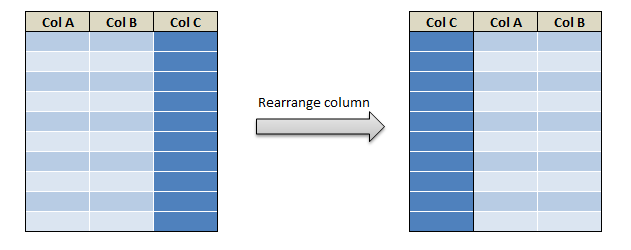

example:ĭf % mutate(rank = ifelse(is.na(var2),'', seq(1:nrow(orderdf))))

I need sort by var1 for those rows which are having var2 as zero and followed by NA in alphabetical order of var1. Please refer the data frame given below.īelow, the data frame is sorted based on var2 column descending order, but var2 contains zero also if var2 is zero I have to sort the data frame based on var1 for the rows which are having zero in var2. In case var2 is zero I have to sort the var1 column (character column) in alphabetical order and give rank. Please see the data frame 2 and 3 rows, var2 values are identical in that case I have to consider var3 to give rank. If this column value is zero then arrange the data frame based on another character column for those rows which have zero as a value in a numeric column.īut to give rank I have to consider var2 that is the reason I sorted based on var2, if there is any identical values in var2 for those rows I have to consider var3 to give rank.

These scoped variants of arrange () sort a data frame by a selection of variables. Automation Column-wise operations Row-wise operations Programming with dplyr. Arrange rows by a selection of variables arrangeall dplyr Arrange rows by a selection of variables Source: R/colwise-arrange.R Scoped verbs ( if, at, all) have been superseded by the use of across () in an existing verb.
Name genus vore order conservation sleep_total sleep_rem sleep_cycle awake brainwt bodywtġ Cheetah Acinonyx carni Carnivo… lc 12.1 NA NA 11.9 NA 5.00e+1Ģ Owl monkey Aotus omni Primates 17.0 1.80 NA 7.00 1.55e-2 4.80e-1ģ Mountain beaver Aplodontia herbi Rodentia nt 14.4 2.40 NA 9.60 NA 1.35e+0Ĥ Greater short-tailed shrew Blarina omni Soricom… lc 14.9 2.30 0.133 9.10 2.90e-4 1.90e-2ĥ Cow Bos herbi Artioda… domesticated 4.00 0.700 0.667 20.0 4.23e-1 6.00e+2Ħ Three-toed sloth Bradypus herbi Pilosa 14.4 2.20 0.767 9.60 NA 3.I have a data frame that is sorted based on one column (numeric column) to assign the rank. Grouped data Two-table verbs dplyr <-> base R.#Dplyr arrange install
To use arrange () function, you have to install dplyr first using install.packages (‘dplyr’) and load it using library (dplyr). Github msleep head(msleepp)Įrror in head(msleepp) : object 'msleepp' not found The arrange () function from the dplyr package is used to order the rows of a data frame by the values of selected columns in either ascending or descending order. It is often necessary to rename variables to make them more meaningful. It takes a tibble, followed by the unquoted names of columns. arrange() : sort results count() : count discrete values. Glue 1.2.0 cran 1.3.1 cran 1.17 CRAN (R 3.4.1) The arrange() function lets you reorder the rows of a tibble. I just installed the newest version of dplyr and I'm not getting the error that you see. Sleep_rem sleep_cycle awake brainwt bodywtĮrror in arrange(., order) : could not find function "arrange"

Name genus vore order conservation sleep_totalġ Cheetah Acinonyx carni Carnivora lc 12.1ģ Mountain beaver Aplodontia herbi Rodentia nt 14.4Ĥ Greater short-tailed shrew Blarina omni Soricomorpha lc 14.9ĥ Cow Bos herbi Artiodactyla domesticated 4.0Ħ Three-toed sloth Bradypus herbi Pilosa 14.4 > is the pipe operator to pass the result to the dataframe. bygroup TRUE ) in order to group by them, and functions of variables are evaluated once per data frame, not once per group. Unlike other dplyr verbs, arrange () largely ignores grouping you need to explicitly mention grouping variables (or use. Syntax: dataframe > select (order (colnames (dataframe),decreasingTRUE)) where, dataframe is the input dataframe. arrange () orders the rows of a data frame by the values of selected columns. Remove rows with all or some NAs (missing values) in ame. arrange() works similarly to filter() except that instead of selecting. Sort (order) data frame rows by multiple columns. Dplyr package in R is provided with arrange () function which sorts the dataframe by multiple conditions. It tells you that dplyr overwrites some functions in base R. so we will order the columns using colnames function in reverse. correct way to use dplyr::arrange with dynamic sort by columns. Arrange/sort and compute cumulative summs library(dplyr) df2. Get this in the R console (using RStudio interface): Method 4: Rearrange or Reorder the column name in alphabetically reverse order. These triangles are further arranged in a way that they have a group of 6 and they. The dplyr arrange function worked fine yesterday 28Feb2018 but does not work this AM 01Mar2018.anything to do with the recent commit? Ensured dplyr is installed and loaded.


 0 kommentar(er)
0 kommentar(er)
